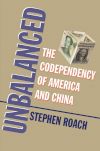The Forgotten Depression - 1921: The Crash that Cured Itself
Reviewer: Bill Allen
The Forgotten Depression - 1921 is an account of the deep economic slump of 1920–21 that proposes, with respect to federal intervention, “less is more.” This is a free-market rejoinder to the Keynesian stimulus applied by Bush and Obama to the 2007–09 recession, in whose aftereffects, Grant asserts, the nation still toils.
James Grant tells the story of America’s last governmentally-untreated depression; relatively brief and self-correcting, it gave way to the Roaring Twenties. His book appears in the fifth year of a lackluster recovery from the overmedicated downturn of 2007–2009
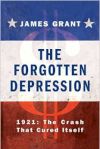
How to Speak Money
Reviewer: Anna Leach, Head of Economic Analysis, CBI
Money is our global language. Yet so few of us can speak it. The language of the economic elite can be complex, jargon-filled and completely baffling. Above all, the language of money is the language of power - power in the hands of the same economic elite.
Now John Lanchester, bestselling author of Capital and Whoops! sets out to decode the world of finance for all of us, explaining everything from high-frequency trading and the World Bank to the difference between bullshit and nonsense.
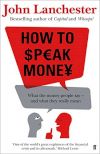
Can financial markets be controlled?
Reviewer: Kitty Ussher, Managing Director, Tooley Street Research
The Global Financial Crisis overturned decades of received wisdomon how financial markets work, and how best to keep them in check.Since then a wave of reform and re–regulation has crashed overbanks and markets. Financial firms are regulated as never before.
But have these measures been successful, and do they go farenough? In this smart new polemic, former central banker andfinancial regulator, Howard Davies, responds with a resounding no . The problems at the heart of the financial crisis remain. There is still no effective co–ordination of internationalmonetary policy. The financial sector is still too big and,far from protecting the economy and the tax payer, recentgovernment legislation is exposing both to even greater risk.
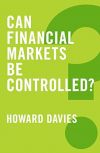
Fortune Tellers: The Story of America’s First Economic Forecasters
Reviewer: Ian Harwood, Independent Consultant
The period leading up to the Great Depression witnessed the rise of the economic forecasters, pioneers who sought to use the tools of science to predict the future, with the aim of profiting from their forecasts. This book chronicles the lives and careers of the men who defined this first wave of economic fortune tellers, men such as Roger Babson, Irving Fisher, John Moody, C. J. Bullock, and Warren Persons. They competed to sell their distinctive methods of prediction to investors and businesses, and thrived in the boom years that followed World War I. Yet, almost to a man, they failed to predict the devastating crash of 1929.
Walter Friedman paints vivid portraits of entrepreneurs who shared a belief that the rational world of numbers and reason could tame–or at least foresee–the irrational gyrations of the market. Despite their failures, this first generation of economic forecasters helped to make the prediction of economic trends a central economic activity, and shed light on the mechanics of financial markets by providing a range of statistics and information about individual firms. They also raised questions that are still relevant today. What is science and what is merely guesswork in forecasting? What motivates people to buy forecasts? Does the act of forecasting set in motion unforeseen events that can counteract the forecast made?
Masterful and compelling, Fortune Tellers highlights the risk and uncertainty that are inherent to capitalism itself.
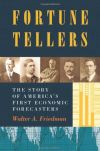
The Shifts and the Shocks
What we’ve learned - and have still to learn - from the financial crisis
Reviewer: Mark Cleary, Kinetic Economics
Chief Economics Commentator of the Financial Times Martin Wolf gives an insightful and timely analysis of why the financial crisis occurred, and of the radical reforms needed if we are to avoid a future repeat.
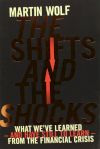
How Good Can We Be
Ending The Mercenary Society And Building A Great Country
Reviewer: Christine Shields, Shields Economics
Britain is beset by a crisis of purpose. For a generation we have been told the route to universal well-being is to abandon the expense of justice and equity and so allow the judgments of the market to go unobstructed. What has been created is not an innovative, productive economy but instead a capitalism that extracts value rather than creates it, massive inequality, shrinking opportunity and a society organised to benefit the top 1%. The capacity to create new jobs and start-ups should not disguise that in the main the new world is one of throw away people working in throw away companies. The British are at a loss.
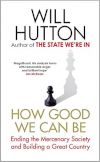
British Financial Crises since 1825
Reviewer: Bridget Rosewell
This book provides a history of British financial crises since the Napoleonic wars. Interest in crises lapsed during the generally benign financial conditions which followed the Second Word War, but the study of banking markets and financial crises has returned to centre stage following the credit crunch of 2007-8 and the subsequent Eurozone crisis.
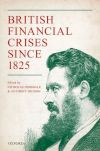
Climate Shock: The Economic Consequences of a Hotter Planet
Reviewer: David Fell, Director, Brook Lyndhurst
In Climate Shock, Gernot Wagner and Martin Weitzman explore in lively, clear terms the likely repercussions of a hotter planet, drawing on and expanding from work previously unavailable to general audiences
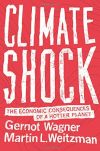
Money, blood and revolution
How Darwin and the doctor of King Charles I could turn economics into a science
Reviewer: Keith, Wade, Chief Economist, Schroders
Economics is a broken science, living in a kind of Alice in Wonderland state believing in multiple, inconsistent, things at the same time. Prior to the financial crisis, mainstream economics argued simultaneously for small government on taxation, regulation and spending, but big government on monetary policy. After the financial crisis, economics is now arguing for more government spending and for less government spending.
The premise of this book is that the internal inconsistencies between economic theories - the apparently unresolvable debates between leading economists and the incoherent policies of our governments - are symptomatic of economics being in a crisis. Specifically, in a scientific crisis.
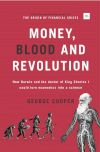
Unbalanced: The co‑dependency of America and China
Reviewer: Christine Shields, Shields Economics
The Chinese and U.S. economies have been locked in an uncomfortable embrace since the late 1970s. Although the relationship initially arose out of mutual benefits, in recent years it has taken on the trappings of an unstable codependence, with the two largest economies in the world losing their sense of self, increasing the risk of their turning on one another in a destructive fashion. In Unbalanced: The Codependency of America and China Stephen Roach, senior fellow at Yale University and former chairman of Morgan Stanley Asia, lays bare the pitfalls of the current China-U.S. economic relationship.
